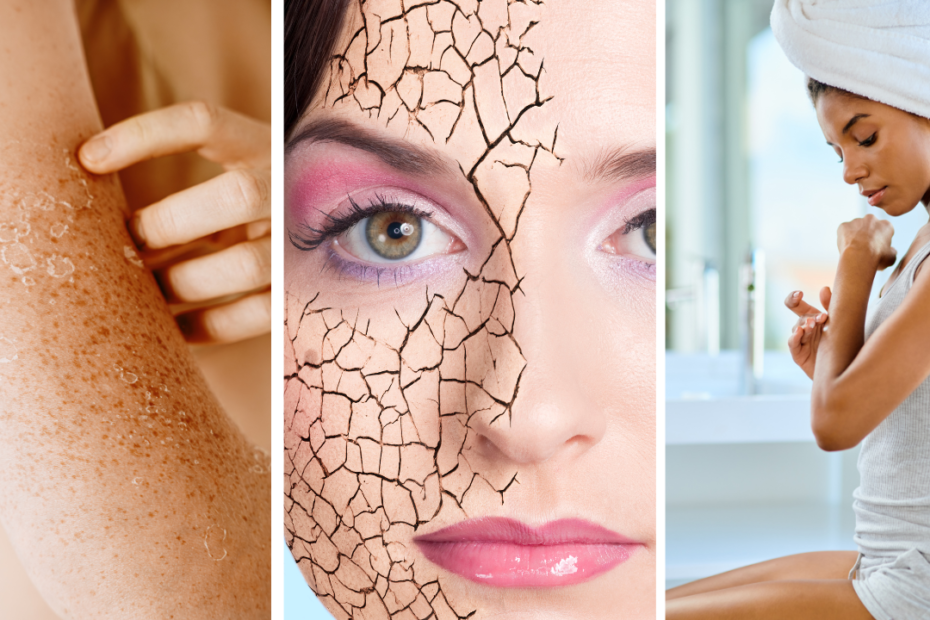Understanding Cracked Skin and Its Causes
Cracked skin is a common yet frustrating issue that affects individuals of all ages. It typically occurs when the skin loses moisture and becomes dry, leading to small fissures and painful gaps. The most affected areas include the hands, feet, lips, and elbows. Various factors contribute to cracked skin, including environmental conditions, lifestyle habits, and underlying health conditions.
Common Causes of Cracked Skin
- Harsh Weather Conditions – Cold, dry air and low humidity levels strip the skin of its natural oils, making it more prone to cracking.
- Frequent Hand Washing – Excessive use of soap and water disrupts the skin barrier, leading to dehydration and cracks.
- Dehydration – Inadequate water intake reduces skin elasticity, making it more susceptible to damage.
- Nutritional Deficiencies – Lack of essential vitamins and minerals, such as Vitamin E, Zinc, and Omega-3 fatty acids, can result in skin dryness and cracking.
- Medical Conditions – Skin disorders like eczema, psoriasis, and diabetes often cause or exacerbate cracked skin.
- Chemical Exposure – Prolonged contact with harsh chemicals, such as detergents and alcohol-based sanitizers, weakens the skin barrier.
Preventing Cracked Skin: Essential Daily Care Tips
Hydration and Moisturization
Keeping the skin hydrated is crucial in preventing cracks and dryness. Incorporating a high-quality moisturizer into your routine helps retain moisture and strengthen the skin barrier.
- Use a thick, emollient-based moisturizer with ingredients like shea butter, glycerin, and hyaluronic acid.
- Apply moisturizer immediately after bathing to lock in moisture.
- Use overnight treatments such as hydrating gloves or socks for deep penetration.
Gentle Cleansing Routine
Harsh cleansers can strip away the natural oils, exacerbating dryness. Opt for mild, fragrance-free cleansers to maintain skin balance.
- Choose pH-balanced cleansers that do not irritate the skin.
- Avoid hot showers and instead use lukewarm water to prevent excessive drying.
- Pat the skin dry with a soft towel instead of rubbing.
Protecting the Skin Barrier
- Wear gloves while doing household chores to avoid direct contact with chemicals.
- Apply lip balm regularly to prevent cracked lips, especially in winter.
- Use sunscreen to protect against UV-induced dryness and premature aging.
Home Remedies for Healing Cracked Skin
1. Coconut Oil
Coconut oil is an excellent natural moisturizer due to its antibacterial and hydrating properties. Apply a generous amount to affected areas before bedtime.
2. Honey and Oatmeal Mask
Honey is a natural humectant, meaning it draws moisture into the skin. When combined with oatmeal, it soothes irritation and provides deep hydration.
How to Use:
- Mix 1 tablespoon of honey with 1 tablespoon of finely ground oatmeal.
- Apply to cracked skin and leave for 15 minutes before rinsing.
3. Aloe Vera Gel
Aloe vera has anti-inflammatory and healing properties that help repair cracked skin quickly.
How to Use:
- Extract fresh aloe vera gel and apply it directly to the affected areas.
- Leave it overnight for maximum hydration.
4. Olive Oil and Sugar Scrub
A homemade scrub using olive oil and sugar helps remove dead skin cells, making way for new, healthy skin.
How to Use:
- Mix equal parts of olive oil and sugar.
- Gently massage onto cracked skin in circular motions.
- Rinse and apply moisturizer.
Best Over-the-Counter Treatments for Cracked Skin
For severe cases, over-the-counter treatments can provide rapid relief.
- Petroleum Jelly (Vaseline) – Acts as an occlusive barrier to lock in moisture.
- Urea Creams – Help in deep exfoliation and hydration.
- Lanolin-Based Creams – Provide long-lasting moisture, ideal for severely cracked heels and hands.
- Hydrocortisone Cream – Helps reduce inflammation and irritation caused by cracked skin.
When to Seek Medical Attention
While mild cases of cracked skin can be managed at home, severe cases require medical intervention. Consult a dermatologist if you experience:
- Persistent pain and bleeding.
- Signs of infection, such as redness, swelling, or pus formation.
- Cracks that do not heal despite using moisturizers and treatments.
Conclusion
Cracked skin is a widespread concern that can cause discomfort and irritation. By following a proper skincare routine, using effective home remedies, and incorporating medical treatments when necessary, you can maintain smooth, hydrated, and healthy skin year-round.
